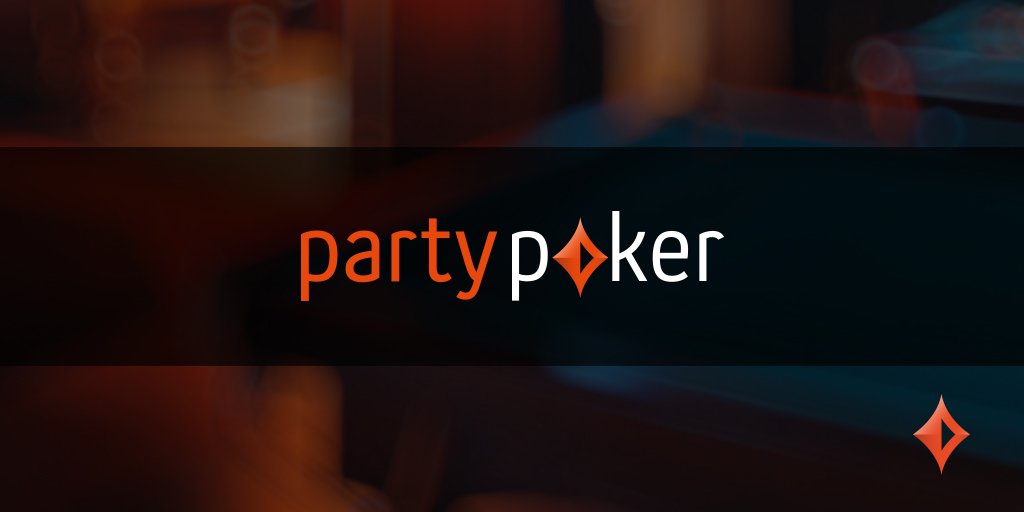Partypoker Announces Real-Name Cash-Game Tables
In this era of online poker rooms implementing anonymous tables in order to thwart third-party tracking software and make the poker experience more comfortably for recreational players, partypoker has taken a different tack. On Thursday, partypoker announced that it will permit players to use their real names at cash-game tables.
The announcement came in a blog post about other software changes that are otherwise of little significance except for a host of updates to the tournament lobby for Mac users. Here is what was said:
partypoker have today released a new software update that will allow players to use their real names on cash game tables instead of their screen names. Offering real name cash games reduces player concerns around anonymity and the chance to build more of a community feel around the tables.
Players will have to see for themselves how it will work
 One of the odd things about this announcement is that there was never anything preventing a player from using their real name at the tables, as far as I can tell. Players could always use their real name as their screen name, similar to how the sponsored pros and members of Team Full Tilt used to do it on Full Tilt Poker. Of course, very few online poker players do this, at partypoker or elsewhere. Some players who might have considered it might not have thought it was an option, either, thinking they had to make up a different screen name.
One of the odd things about this announcement is that there was never anything preventing a player from using their real name at the tables, as far as I can tell. Players could always use their real name as their screen name, similar to how the sponsored pros and members of Team Full Tilt used to do it on Full Tilt Poker. Of course, very few online poker players do this, at partypoker or elsewhere. Some players who might have considered it might not have thought it was an option, either, thinking they had to make up a different screen name.
Very little information has been put out about this and as I live in the United States and therefore don’t have a partypoker account, I can’t test it out. I would presume that there is some option in the software settings to use one’s registered real name instead of a screen name that can be toggled on and off as desired.
It is also a bit unclear as to whether real names can be used at all tables or if it will just be specific tables. And if it is specific tables, are real names required or optional (I would guess required if there are special tables for it)?
Rob Yong, a managing partner at PartyPoker, tweeted that he was in favor of the initiative, but other than that he has provided little detail. He posted a screenshot of an example table which, as expected, had his real name in his seat. He also wrote, “On cash games on @partypoker only players at table can see obviously.”
Some players will love the idea
The arguments for using real names at cash game tables are summed up in partypoker’s brief announcement. Allowing players to hide behind screen names – or no names in the case of anonymous tables – makes it harder to detect collusion, especially as sites continue to move toward thwarting third-party software. It would also presumably make players more wary of cheating, as their real names would be out there for all to see.
Etiquette seems to be a sizeable concern to both Yong and partypoker and it makes sense. Online culture, be it in gaming, social media, message forums, or what-have-you, is rife with toxicity as people have the ability to stay anonymous. If I’m posting under a screen name and perhaps with a fake e-mail address, I’d be less hesitant to tell somebody to “fuck off” than I would in person or if I was using my real name. Similarly, if I know someone’s real name, they are humanized to me more and I might be less willingly to be an asshole to them.*
Others will hate it
On the other side of the argument, opponents – or at least skeptics of the decision – worry that players could be more at risk to be the victims of doxing, extortion, or real-life threats if someone knows that they have been a big winner at the poker tables. One downside to live poker is that if you win a lot of money, someone with ill intentions could notice and follow you to your car or even tail you home. It probably wouldn’t be likely, but someone could track down an online winner in real life.
Pros and recreational players would have different reasons for not wanting to use their real names. Pros, naturally, might not want people to know who they were so they could get more action; I know I wouldn’t want to play against somebody I know is a lot better than me. Recreational players may prefer the more relaxed environment of anonymity and don’t want the pressure of having to perform (as much as I dream about making the WSOP Main Event final table, I’d be shitting bricks knowing everyone will see when I make a terrible decision).
There is a specific concern for female players, as well. Women often encounter sexism and harassment in a game that is still very much a “good old boys club” and being able to not advertise their gender makes them more comfortable online. In fact, somewhere around half or more online players are women, compared to single-digit percentages commonly found in live poker.
*I’m not saying I actually engage in toxic behavior online, I’m just giving a hypothetical example.



















COMMENTS